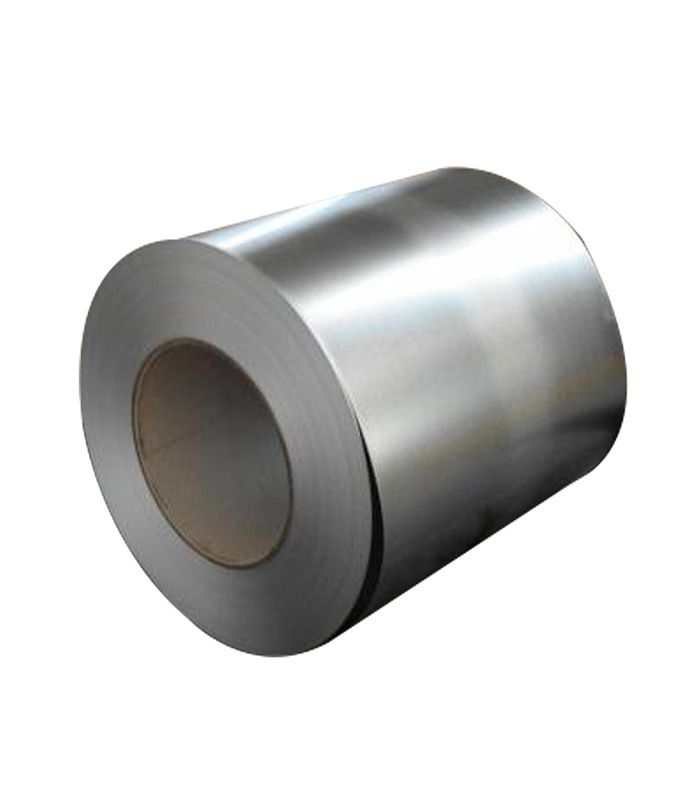Manufacturing Process of Cold Rolled Steel Coil
Cold rolled steel coil is a popular and widely used material in various industries due to its versatility, superior quality, and excellent mechanical properties. This article aims to explore the characteristics, manufacturing process, applications of cold rolled steel coil.
I. Introduction
Cold rolled steel coil is produced through a process of rolling hot rolled steel at room temperature. This process not only increases the strength and hardness of the steel but also improves its surface finish. Cold rolled steel coil is known for its exceptional dimensional accuracy and uniformity, making it an ideal choice for a wide range of applications.

II. Characteristics of Cold Rolled Steel Coil
Cold rolled steel coil offers several advantageous characteristics that contribute to its popularity and widespread use:
A. Superior surface finish
Cold rolling eliminates surface imperfections and scales that are present in hot rolled steel. The result is a smooth and polished surface finish that is highly desirable in many applications, especially those requiring aesthetic appeal.
B. Excellent dimensional accuracy
The cold rolling process ensures precise control over the thickness and width of the steel coil, resulting in excellent dimensional accuracy. This characteristic is particularly important in applications where tight tolerances and consistency are critical.
C. Increased strength and hardness
Cold rolling work-hardens the steel, leading to improved mechanical properties such as increased strength and hardness. This makes cold rolled steel coil suitable for applications that require high strength and structural integrity.
D. Enhanced formability
Cold rolled steel coil exhibits superior formability compared to hot rolled steel. It can be easily shaped, bent, and manipulated into various forms without compromising its structural integrity, making it suitable for complex fabrication processes.
E. Improved surface protection
The smooth and clean surface of cold-rolled steel coil facilitates the adhesion of protective coatings, further enhancing its corrosion resistance and durability. This makes it a reliable choice for applications where protection against rust and environmental factors is crucial.
III. Manufacturing Process of Cold Rolled Steel Coil
The manufacturing process of cold rolled steel coil involves several steps that ensure the production of high-quality and consistent products:
A. Pickling
The hot rolled steel is first subjected to a pickling process to remove impurities, such as scale and oxides, from the surface. This step ensures a clean and uniform substrate for the subsequent cold rolling process.
B. Cold rolling
The pickled steel is then passed through a series of rolling mills at room temperature. This process reduces the thickness of the steel and improves its mechanical properties while maintaining its dimensional accuracy.
C. Annealing
After cold rolling, the steel coil undergoes annealing, a heat treatment process that eliminates internal stresses and further improves the material's mechanical properties. Annealing also enhances the formability of the steel, making it easier to work with during subsequent fabrication processes.
D. Skin passing
In some cases, cold rolled steel coils may undergo a skin passing process. This involves a light cold rolling pass to further improve the surface finish and remove any minor imperfections.
E. Recoiling and packaging
The final step involves recoiling the cold rolled steel coil into a tight and uniform coil shape. The coil is then securely packaged to protect it during transportation and storage.
IV. Applications of Cold Rolled Steel Coil
Cold rolled steel coil finds diverse applications across various industries due to its exceptional qualities:
A. Automotive industry
Cold rolled steel coil is extensively used in the automotive industry for manufacturing components such as car body panels, chassis parts, and structural reinforcements. Its high strength, formability, and surface finish make it an excellent choice for producing lightweight and fuel-efficient vehicles.
B. Construction and infrastructure
In the construction and infrastructure sector, cold rolled steel coil is utilized in the production of roofing, cladding, doors, windows, and structural members. Its dimensional accuracy, strength, and corrosion resistance make it suitable for demanding applications that require long-term durability.
C. Appliances and electrical equipment
Cold rolled steel coil is commonly employed in the manufacturing of household appliances, electrical enclosures, and HVAC systems. Its excellent surface finish, formability, and ease of coating make it an ideal choice for products that require an attractive appearance and protection against corrosion.
D. Furniture and shelving
The furniture and shelving industries also benefit from cold rolled steel coil. Its versatility, strength, and aesthetic appeal make it a preferred material for producing durable and visually appealing furniture, cabinets, and storage systems.
E. Pipes and tubes
Cold rolled steel coil is used in the production of pipes and tubes for various applications, including plumbing, construction, and automotive exhaust systems. Its dimensional accuracy, uniformity, and high strength ensure reliable performance and longevity.
Previous: Types of Outdoor Sports Court Tiles
Next: Geogrid vs. Geotextile: Which Solution is Right for Soil Reinforcement?
If you are interested in sending in a Guest Blogger Submission,welcome to write for us!




Comments
0